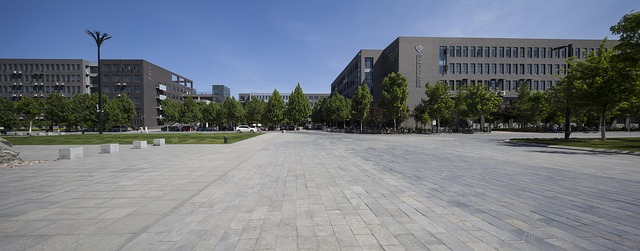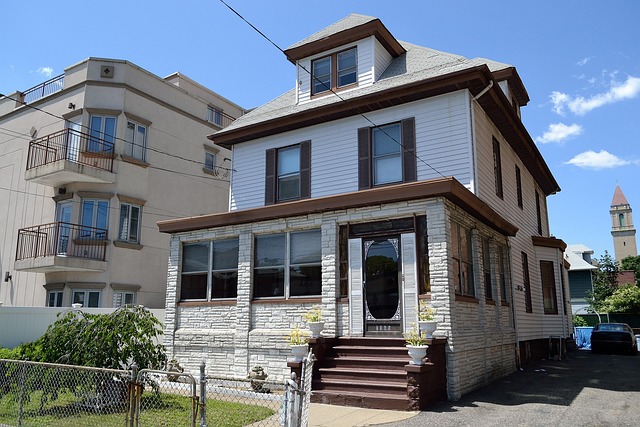Comprehensive Student Accommodation Guide: Find Your Perfect Off-Campus Home

When looking for off-campus housing through a student accommodation guide, consider shared flats to…….
We are At Your Service
In today’s dynamic educational landscape, students and young professionals increasingly opt for off-campus living, seeking independence, diverse communities, and unique experiences beyond traditional dorms or university housing. This shift has led to a thriving market for “Tips and Tricks for Finding the Perfect Off-Campus Housing,” empowering individuals to navigate the complexities of non-traditional accommodation choices with confidence and ease. This comprehensive article delves into the intricacies of this topic, offering valuable insights, practical advice, and real-world examples to help readers embark on their off-campus housing journey successfully.
“Tips and Tricks for Finding the Perfect Off-Campus Housing” refers to a curated set of strategies, resources, and practices designed to assist individuals in identifying, evaluating, and securing suitable accommodation options outside of campus boundaries. It encompasses a range of activities from researching neighborhoods, understanding legal aspects, leveraging technology, to negotiating terms with landlords. This concept is crucial for several reasons:
The concept of off-campus housing has transcended geographical boundaries, influencing students and landlords worldwide. However, its implementation and popularity vary across regions, shaped by unique cultural, economic, and social factors:
| Region | Key Trends | Notable Influences |
|---|---|---|
| North America | High demand for urban living, with a focus on walkability, public transport, and proximity to educational institutions. | Vibrant city centers like New York, Los Angeles, and Toronto offer diverse housing options and thriving cultural scenes. |
| Europe | Emphasis on community and shared spaces, reflecting European values of social interaction and collective living. | Countries like Germany and the Netherlands are known for their well-regulated rental markets and student-friendly housing policies. |
| Asia | Rapid urbanization and a growing young population drive demand for off-campus housing, particularly in major metropolitan areas. | Cities like Tokyo, Seoul, and Shanghai witness high competition for housing, prompting innovative co-living space concepts. |
| Australia & New Zealand | Strong emphasis on safety, security, and well-designed spaces, reflecting outdoor lifestyles and a focus on community. | Urban centers like Sydney and Melbourne offer diverse housing options, while smaller cities embrace unique, locally-focused accommodations. |
The off-campus housing market is influenced by complex economic factors, creating opportunities for both residents and investors:
Technology has revolutionized the way individuals search and secure off-campus housing, offering numerous benefits:
To ensure fair and safe housing practices, various policies and regulations govern the off-campus housing sector:
Despite its benefits, the off-campus housing journey isn’t without challenges and criticisms:
Actionable Solutions:
UC Berkeley implemented a comprehensive off-campus housing program, “Housing for All,” addressing the diverse needs of its student body. They collaborated with local landlords to create a database of affordable, safe, and accessible accommodations. This initiative ensures students have options tailored to their budgets, preferences, and accessibility requirements, fostering an inclusive living environment.
Amsterdam has embraced co-living spaces as a solution to its housing crisis, offering shared apartments with communal areas for socializing and collaboration. These spaces cater to students, young professionals, and digital nomads, fostering a sense of community and enhancing social interaction. The city’s regulatory framework ensures fair practices, making it a model for sustainable off-campus housing.
Harvard University developed a customized online platform, connecting students with carefully curated off-campus housing options. The platform considers academic requirements, social preferences, and budget constraints, providing a personalized experience. This strategy ensures that students find suitable accommodations close to campus, enhancing their overall college experience.
The off-campus housing market is poised for continued growth and evolution, driven by emerging trends:
“Tips and Tricks for Finding the Perfect Off-Campus Housing” is a dynamic field that continues to evolve with technological advancements, global trends, and changing societal needs. By understanding market dynamics, leveraging technology, and navigating regulatory frameworks, individuals can successfully navigate their off-campus housing journey. This article has provided valuable insights, practical advice, and real-world examples to empower readers in making informed choices. As the landscape continues to shift, staying adaptable and well-informed will be key to securing not just accommodation but also a rewarding living experience.
Q: How can I ensure the safety of my off-campus housing?
A: Conduct thorough research on potential areas, consider properties with reputable landlords, and review local safety statistics. Check for well-lit entrances, security systems, and safe neighborhood amenities. Always report any safety concerns to authorities or property managers.
Q: What are some tips for negotiating terms with landlords?
A: Be prepared with market research on comparable rental rates. Offer a longer lease term in exchange for lower rent or other concessions. Demonstrate reliability and responsible behavior during the tenancy to build trust and potentially secure better terms.
Q: How can I find affordable off-campus housing near my university?
A: Start early, as prices tend to increase closer to the academic year. Utilize university-specific housing platforms, local classifieds, and online real estate sites. Consider shared living arrangements or neighborhoods slightly farther from campus for more affordable options.
Q: What should I do if I encounter a housing scam?
A: Document all interactions with the scammer and report it to local law enforcement. Contact your university’s housing office or student support services for assistance. Be cautious when sharing personal information online and verify listings through trusted sources.

When looking for off-campus housing through a student accommodation guide, consider shared flats to…….

Understanding key terms in off-campus rental agreements is crucial for a positive experience. Focus…….

Before renting off-campus as a student, carefully review lease terms, including rent payment schedul…….

Before securing student housing, students should prioritize location preferences, desired amenities,…….

Student housing search requires understanding needs (budget, location, lifestyle), using online reso…….

Thoroughly research student housing options (on-campus, off-campus, homestays, shared houses) consid…….

Off-campus renting for students involves researching local markets, prioritizing needs and budget, u…….

When searching for a college apartment, understanding lease terms is crucial. Pay close attention to…….

International students considering off-campus rentals should thoroughly research local tenancy laws,…….

Prioritize student housing proximity to campus and transportation for easier navigation and enhanced…….